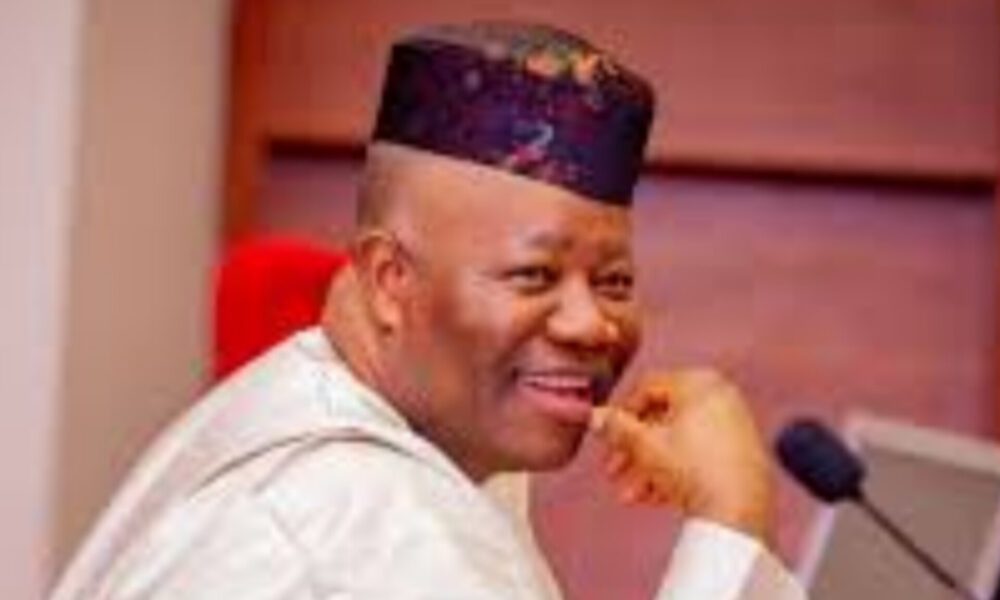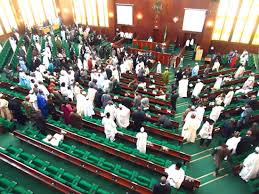The Senate on Wednesday passed the N819, 536,937,813 2022 supplementary budget which was requested for approval by President Muhammadu Buhari last week
Barely 10 days to end of 2022, President Muhammadu Buhari had asked the Senate to approve the N819.5b supplementary budget for the 2022 fiscal year to fix infrastructure destroyed by the flood disaster that ravaged the country recently
The supplementary appropriation as he requested is meant for the capital expenditure component of the 2022 budget with increase in deficit to N8.17trillion.

President Buhari had added that he will embark on additional domestic borrowing to finance the proposed N819.5b supplementary budget.
The Senate therefore approved the Bill for an act to authorize the issue from the Consolidated Revenue Fund (CFR) the total sum of N819, 536,937,813.
The amount was broken down for MDAs involved in the Supplementary Appropriation Bill requests with Federal Ministry of Agriculture and Rural Development having N69,247,175,770, Federal Ministry of Works and Housing, N704,789,762,043, Federal Capital Territory N30,000,000,000 and Federal Ministry of Water Resources N15,500,000,000
The consideration and approval of the budget followed the presentation of the report of the the Senate Joint Committee on the 2022 Supplementary Appropriation Bill during plenary on Wednesday.
The Bill is titled “A Bill for an Act to authorise the issue from the Consolidated Revenue Fund (CFR) the total sum of N819, 536,937,813 for the year ending March 31, 2023.
Presenting the report, Barau recalled that the 2022 Supplementary Appropriation Bill of N819, 536,937,813 all of which were Capital Expenditure was read the first time on Wednesday, Dec. 21.
“The senate subsequently read the bill the second time and referred it to the Appropriation Committee in conjunction with Committees on Agriculture and Rural Development; Works and Housing; and Water Resources for further legislative action.”
He said that the bill sought to among other things, make available additional funds to cushion the effects of the 2022 flood on road infrastructure, agriculture, water infrastructure and completion of some ongoing critical projects that had achieved about 85 per cent completion.
Barau said that the supplementary bill would be financed through additional domestic borrowings, which would raise the 2022 budget to N8.17 trillion only, and Deficit/GDP to 4.43 per cent.
He further said that the committee observed that the effects of the 2022 flood across the country and its attendant consequences on roads, bridges, farmlands and the water sector necessitated the supplementary bill request.
“Ministries Departments and Agencies (MDAs) involved in the Supplementary Appropriation Bill requests are: Federal Ministry of Agriculture and Rural Development.
“Federal Ministry of Works and Housing and Federal Ministry of water Resources”.
The chairman said that the committee recommended that the ministry of agriculture and rural development gets N69, 247, 175, 770.
According to him, ministry of works and housing is to get N704, 789, 762, 043 while Federal Capital Territory (FCT) is to get N30,000,000,000.
“Federal Ministry of Water Resources
is to get N15, 500, 000, 000,”Barau said.
Contributing, Sen. Smart Adeyemi (APC-Kogi) said that the budget would be of benefit to all the nook and cranny of the country.
“The projects will help in guaranteeing security and ensuring the socio-economic development of rural areas.”
On his part, Sen. Mohammed Ndume (APC-Borno) said that “My worry is that this is the reality of what we are doing today.
“It is today that this Senate has considererd to extend the budget by 90 days.
“This budget even if approved, how realistic is it going to be. By the time we process this and the due process that is required in budget implementation for contract execution cannot be circumvented.
“If that is the case, assuming we pass it today, we have 90 days to implement.
“If it is agreed that some of these monies have to be spent within 90 days. It is not possible. Let us not deceive ourselves.
“We should amend the 2023 budget to take care of this projects so that they will have 12 months of implementation.”
The budget was thereafter approved and passed after going through the Committee of Supply.




